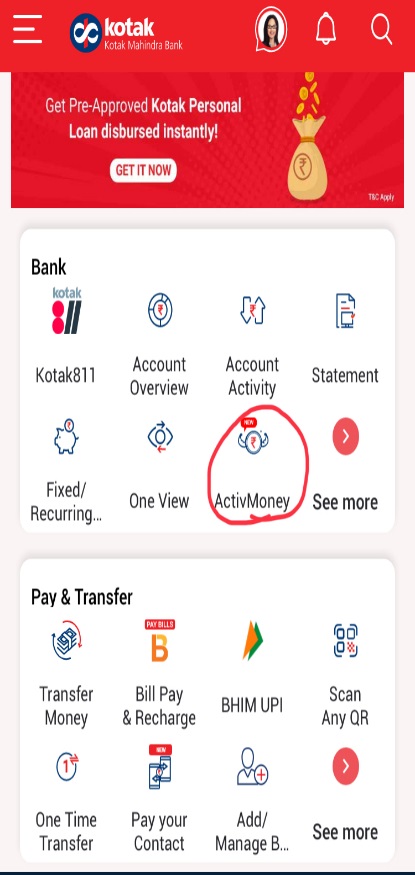Housing Loan: Complete Guide to Secure Your Dream Home

 Owning a house for living is a dream for everyone but how we are going to purchase it only matters. Many of the financial advisors will say, investing in home instead of taking it for rent will not be a better option. But in the modern society living in own house is became a matter of prestigious one. Everyone who wish to buy a ready to occupy house or housing plot or Constructing a new house, it is not sure will have enough money in their hand and hence the Housing Loan is an unavoidable source in buying own house.
Owning a house for living is a dream for everyone but how we are going to purchase it only matters. Many of the financial advisors will say, investing in home instead of taking it for rent will not be a better option. But in the modern society living in own house is became a matter of prestigious one. Everyone who wish to buy a ready to occupy house or housing plot or Constructing a new house, it is not sure will have enough money in their hand and hence the Housing Loan is an unavoidable source in buying own house.
All the Financial institutions and Banks are doing the business and making money by playing between the desires of the public and their need for money to satisfy their desires. Nothing is wrong in it but as a borrower we should be cautious while borrow from these kind of money lenders. No one will give money without any security. Particularly in housing loan, the financial institutions will get the property or proposed building as a security for their loan. Let’s understand the process of getting loan and other related matters one by one.
Why salaried persons are getting loans easily?
First of all, the customers of the bank (i.e. Borrowers) are categorised into two parts vis
- Salaried persons
- Self-employed persons
Normally, Salaried persons will get loans easily compared to business peoples (small and medium level business). Why it is like that? Because what the bankers think is, salaried peoples will get an assured amount of income on every month consistently, so their repayment of loan will be stable. But on the other hand, assessing the repayment capacity of the business people is a trickiest one due to the erratic earnings.
How the loan eligibility will be assessed by the Bank or Other Financial institutions
In this part, banks normally will examine two criteria.
- Repayment capacity of the borrower
- Value of Security offered by the borrower
Repayment capacity means how much amount the borrower can pay to the bank on every month as EMI. This will be assessed based on the last three years average income earned by the borrower after allocating some portion of the income for the borrower’s personal expenses. Say, if your 3 years monthly average income is Rs.50,000 then bank will normally allocate 40% to 50% for your personal expenses and balance amount will be treated for assessing EMI payable capacity. Further, if you already having any EMI Commitment, then that EMI also will be reduced for assessment of your repayment capacity. That’s why they are asking for 3 years Income Tax return filed copies while applying for a loan.
Based on the security value, that is the value of the property offered to the bank for the purpose of obtaining the loan also taken into consideration while assessing the maximum amount of loan. Normally 75 % of the value will be considered.
Further, the above criteria also will be affected by your past behaviours with the financial institutions. For this purpose the bankers will check your CIBIL Score. Higher the score will get higher the opportunity of loans getting sanctioned.
The above conditions may be vary from bank to bank.
Why Banks are not giving loan to Agri-lands?
If a borrower fails to repay the loan, then the bank has the right to sell that property so pledged for obtaining the loan under the SARFAESI Act (THE SECURITISATION AND RECONSTRUCTION OF FINANCIAL ASSETS AND ENFORCEMENT OF SECURITY INTEREST ACT, 2002). But if the Agricultural land cannot be sold under the said Act. It has to be routed through the court only. This will take much time to recover the amount of loan by selling that property. This is the main reason for not taking the Agricultural lands as security for housing loans.
In that case what we have to do for getting a housing loan? We have to register that particular portion of land as a non-agricultural land for the purpose of house construction.
What are the important points to be considered while applying for a housing loan
- First thing is Rate of Interest, whether it is a fixed rate of interest or floating rate of interest
Fixed rate of interest means, the interest amount is fixed throughout the term of loan, it will not be a beneficial if you are paying the amount in excess of EMI since the interest amount is already calculated and fixed for the loan period. On the other hand, Floating rate of interest means there will be a base rate (MCLR, LIBOR like that) which will be determined by RBI or other respective authority from time to time based on the economic condition and bank will calculate interest for every month on the outstanding balance of that month based on the Base rate + spread rate i.e. profit percentage fixed by the bank. For instance, current MCLR is 7% and your banker fixed the spread rate as 1.5% then your interest rate will be 8.5%. Whenever the base rate is changed, then your interest rate also will be changed accordingly.
And compare the Rate of Interest of various banks and financial institutions before apply for a loan.
- Term of Loan – Normally this will be determined by the banks based on the age of the borrower. Before agreeing with the loan period one must keep in mind about the future commitment and repayment capacity as well.
- Insurance – Taking a proper insurance with the adequate amount to cover the liability of the loan and asset value is very important to safeguard any uncertain events in the future. There are several insurance options available, some kind of insurance will offer benefit of repaying the entire amount of EMI paid so far to the legal heirs in case of uncertainty.
Procedure to obtain a housing loan
- Make an application with the banker, there will be one applicant and one guarantor, and there can be one or more co-applicants as well
- Documents needed before applying for the loan (This will vary from bank to bank)
- Duly signed loan application form.
- 2-3 latest passport size colour photographs.
- Self-attested identity proof – PAN/Passport Copy/Driver’s License. (Any One)
- Self-attested address Proof – (Aadhar card/passport/driving license/telephone/electricity bill/water bill/gas bill). (Any One)
- For Salaried – Latest 6 months’ salary slips, latest 2yrs Form No-16, latest 6 months bank account’s salary credit statement & copy of appointment letter.
- For Self Employed –
- Latest 3yrs ITR copy with computation of income, profit & loss a/c, balance sheet and capital account – CA attested with membership number and UDIN number.
- Latest 2years copy of 26 AS.
- Business profile
- Business registration copy
- Latest 12 months bank account statement.
- GST returns for 1 year – If GST is applicable.





